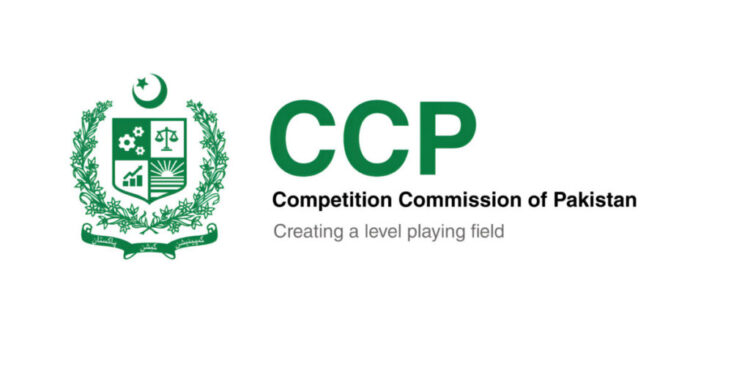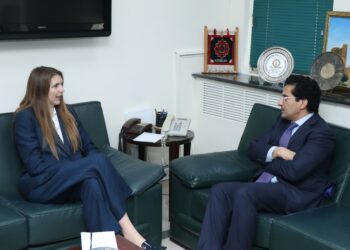ISLAMABAD: Lahore High Court has rejected Honda Atlas’s petition against the Competition Commission of Pakistan (CCP) in which the auto company had requested the court to stop the Commission for probe.
A detailed judgment by Justice Raheel Kamran has been issued on Honda Atlas’s appeal.
The court has ordered the Competition Commission to complete its inquiry within six months.
According to the Lahore High Court, the Competition Commission has full authority to obtain data and information.
The court declared Honda Atlas’s legal objections to be baseless.
The Competition Commission had sought information from the auto sector regarding own money, delivery delays, and price increases.
The judgment stated that the Competition Act 2010 is applicable throughout the country, and companies are bound to provide data.
The Lahore High Court noted that the Supreme Court has already ruled on the Commission’s authority in the Dalda case.
The court directed the CCP (Competition Commission of Pakistan) to complete the inquiry within six months.
M/s Honda (Petitioner) is an automobile manufacturer in Pakistan. The CCP initiated inquiry proceedings suo moto against three market players of automobile industry including the petitioner on 29.11.2018 under section 37(1) of the Act, 2010 with respect to the concerns regarding increase in prices of vehicles. Notices were issued to the petitioner requiring certain information, which were responded by the petitioner and in March, 2021 a detailed presentation regarding the operations and sales of the petitioner company was also given. However, the inquiry has not been concluded and the impugned notices have been issued.
Learned counsel for the petitioner submitted that the entire proceedings initiated by the CCP are coram non judice and without lawful authority. It is contended that the inquiry, having been initiated in 2018, has been pending for almost five years without conclusion, which amounts to harassment and is a violation of the petitioner’s right to due process. It is further argued that the CCP has never formally communicated the grounds or prima facie reasons for the initiation of the suo moto inquiry, leaving the petitioner in the dark as to the precise allegations it must meet. Learned counsel maintained that the impugned notices are a testament to the CCP‟s arbitrary exercise of power, as they constitute a fishing and roving inquiry, demanding voluminous and irrelevant information that has no nexus with the purported subject matter of the inquiry.
Conversely, learned counsel for the respondent-CCP has vehemently opposed this petition, primarily on the ground of maintainability. It is argued that the petitioner, by its own conduct, is estopped from challenging the proceedings. Learned counsel explained that the petitioner received the first notice in 2018, replied to it and subsequently participated in the proceedings, even giving a detailed presentation in March 2021. Learned counsel emphasized that having accepted the jurisdiction of the CCP for four years, the petitioner cannot now be allowed to approbate and reprobate by challenging the very foundation of the inquiry. It is further argued that this petition is premature, as the impugned notices are not final orders but are merely procedural steps for information gathering, which is a power expressly conferred upon the CCP by Section 37 of the Act, 2010. On merits, it is submitted that the petitioner’s plea of ignorance regarding the basis of the inquiry is factually incorrect. It has been explained that the notice dated 17.12.2018 clearly stated that the inquiry was initiated under Section 37(1) with respect to the concerns raised against increase(s) in the prices of vehicles by automobile manufacturers. Thus, the reason was communicated from day one. Learned Assistant Attorney General has adopted the arguments of the learned counsel for the CCP.
In rebuttal, learned counsel for the petitioner contended that mere compliance with earlier notices was done in good faith and does not create an estoppel against the petitioner from challenging a continuing illegality, especially when the new notices are overbroad and constitute a fresh cause of action.
For the foregoing reasons, this petition is found to be devoid of any merit and is accordingly dismissed.
Before parting with this order, it is observed that although the Act, 2010 does not prescribe any statutory timeframe for conclusion of an inquiry under Section 37, principle of fairness demands that such proceedings are not kept pending for an indefinite period and must be concluded within a reasonable time. What constitutes reasonable time depends upon the nature and complexity of the matter; however, prolonged pendency without conclusion gives rise to apprehensions of arbitrariness, uncertainty and administrative abuse. Vesting unregulated and open-ended discretion in a regulatory authority can inadvertently create fertile ground for exploitation and undermines the public confidence in a regulatory framework. While this Court refrains from interfering with the ongoing investigative process, it expects the respondent-CCP to ensure that the inquiry initiated in 2018 is brought to a logical conclusion expeditiously and within a reasonable period. The CCP shall make best endeavours to conclude the inquiry preferably within six months from the date of this judgment. Ends
Islamabad, London explore enhanced cooperation in energy and mineral sector
ISLAMABAD: Federal Minister for Petroleum, Ali Pervaiz Malik, held a meeting with the British High Commissioner to Pakistan, Jane Marriott,...
Read more














